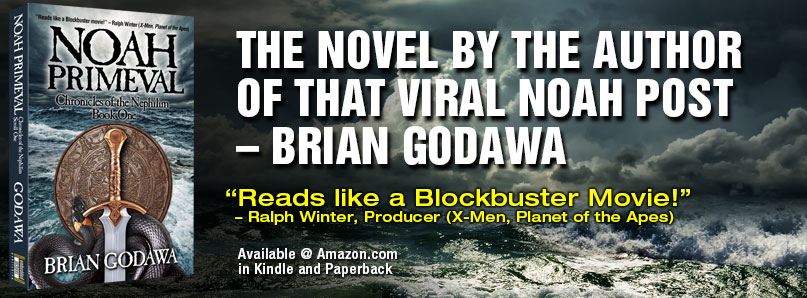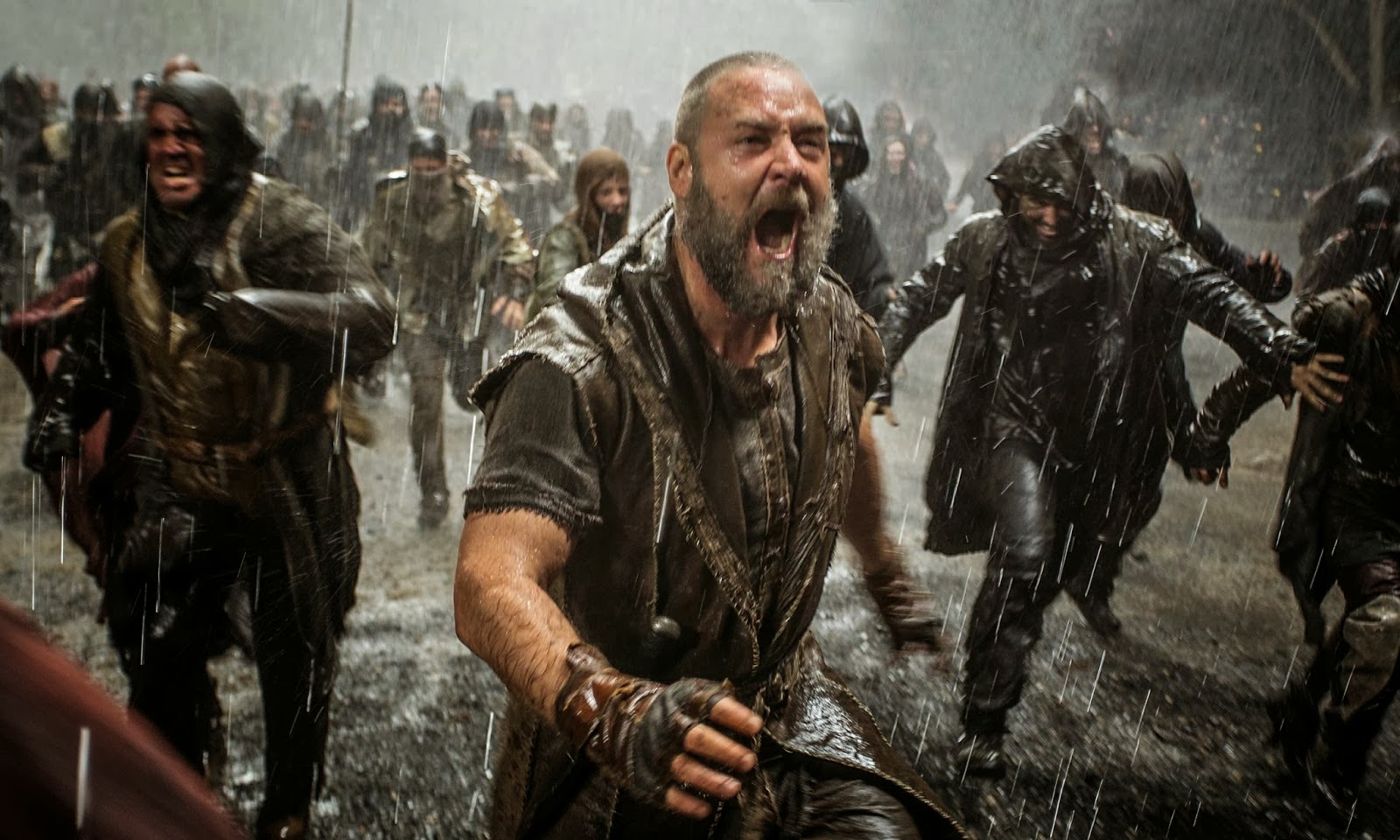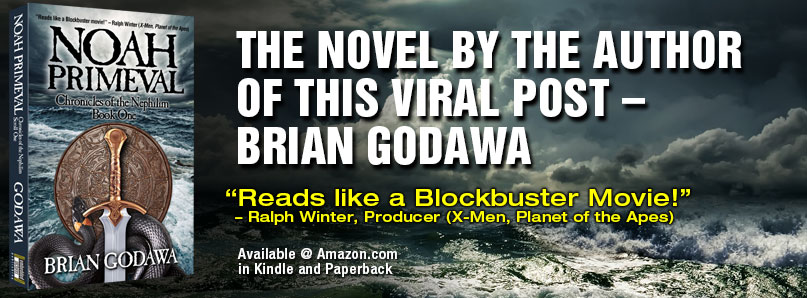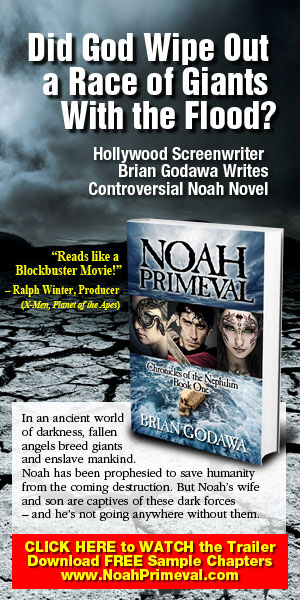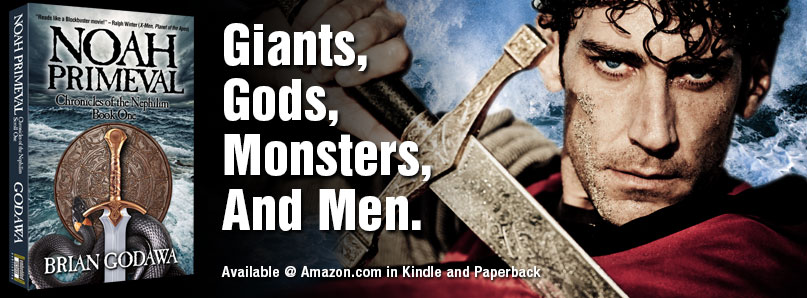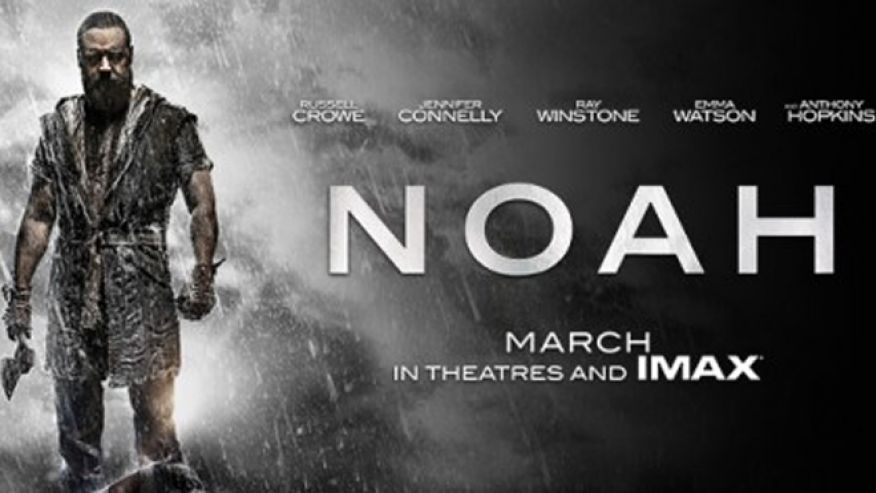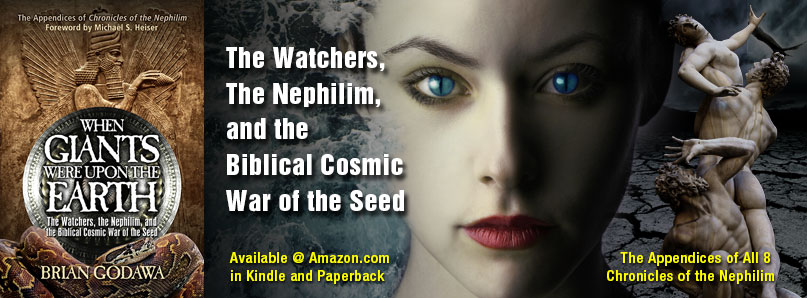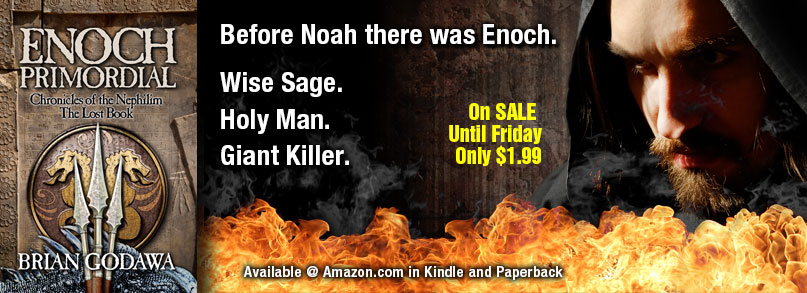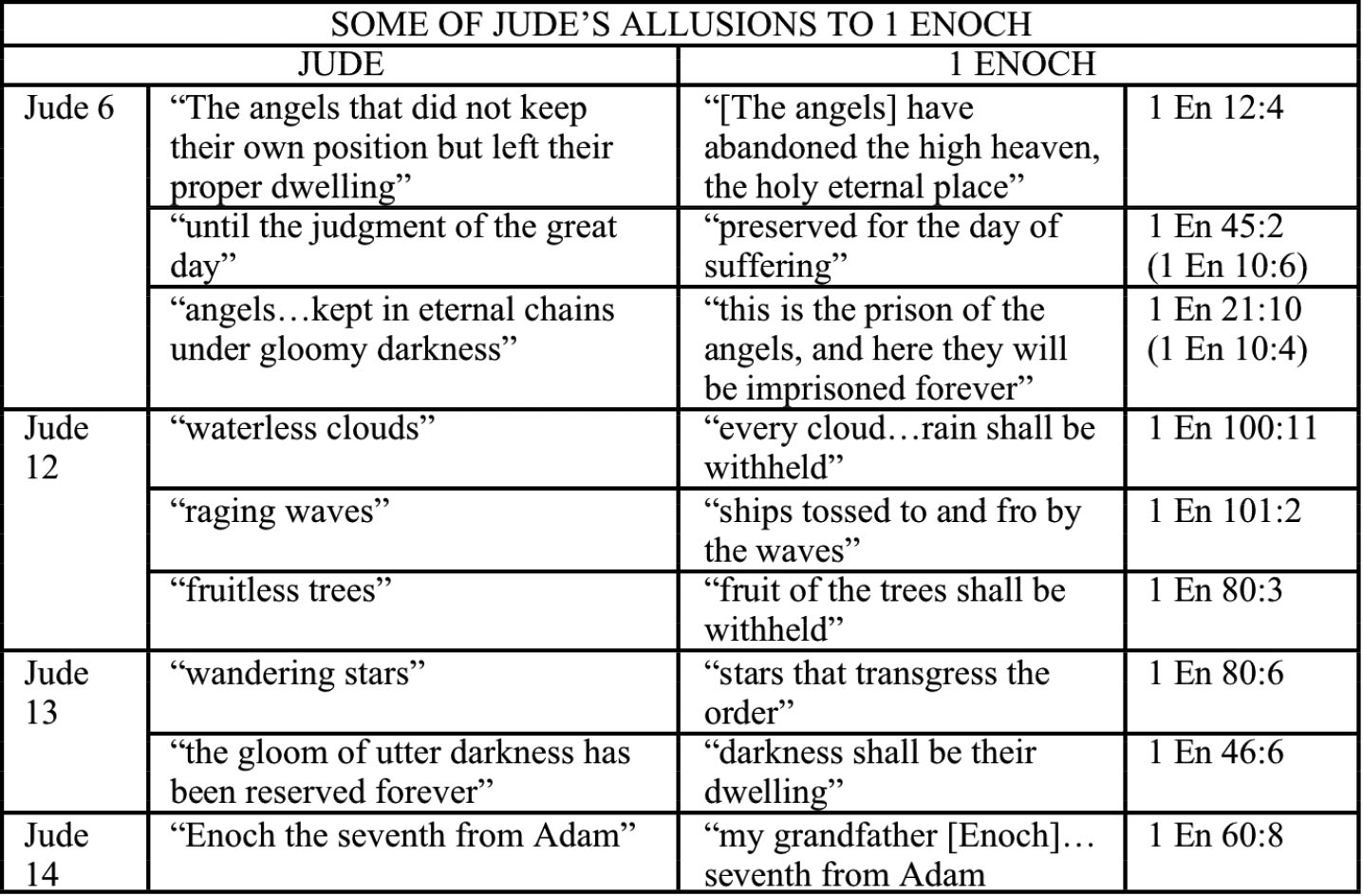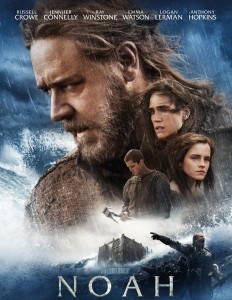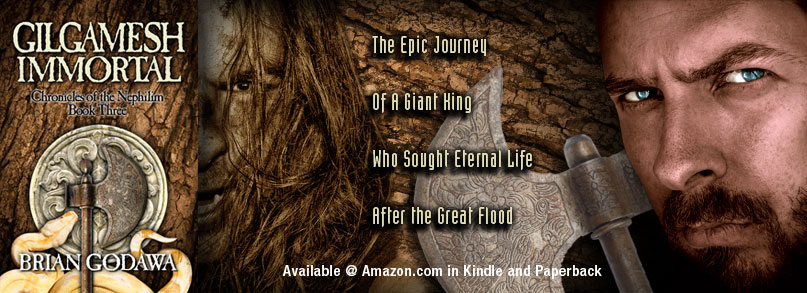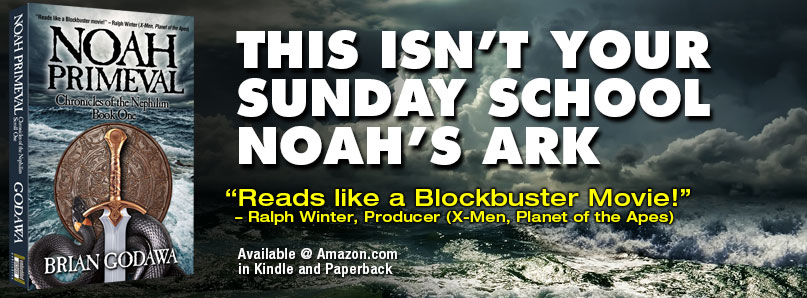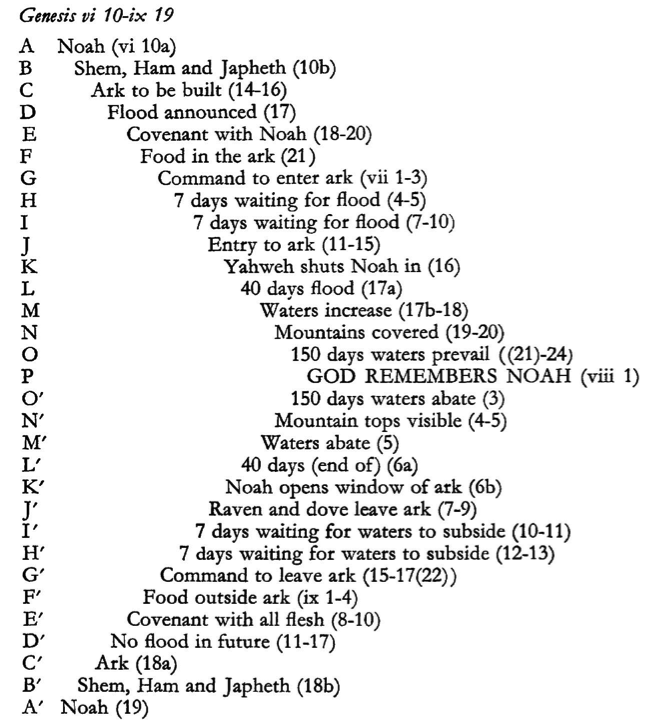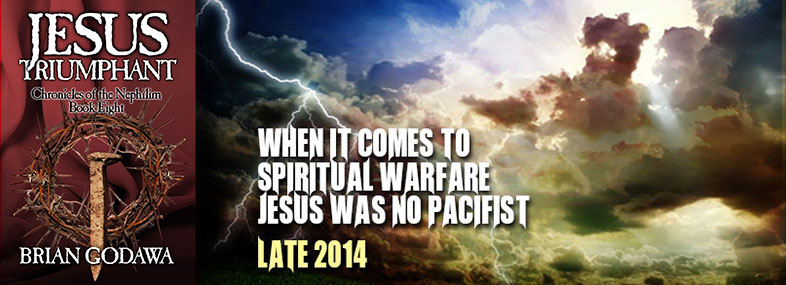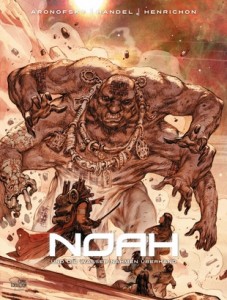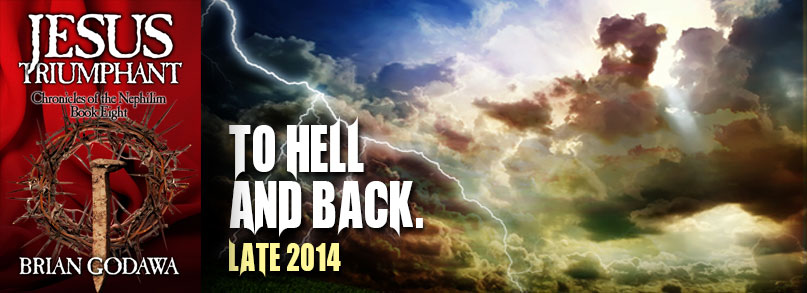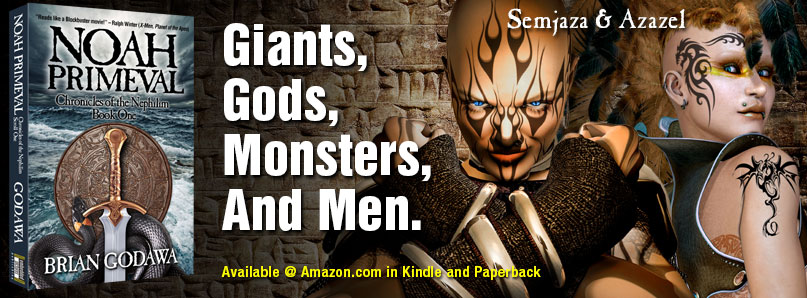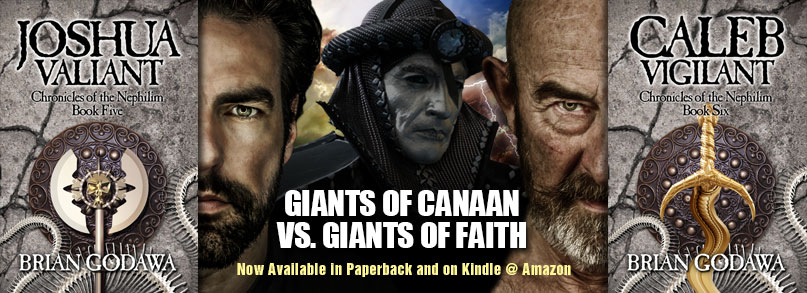Brian Mattson’s brilliant post about the Gnosticism of the Noah movie has struck a cord of truth in a Christian world that doesn’t know why it is bothered by the film, but knows something’s rotten in Denmark. He points out from various gnostic and Jewish mystical texts the monist gnostic and Kabbalah influence on Aronofsky’s interpretation of the sacred Biblical story. Don’t worry if you can’t understand the academese gobbledygook. It will be explained below.
Peter Chattaway tries to discredit this revelation in his bulldog support of the movie, but the snake is out of the bag. The reason Noah is polarizing is because it is a subversion of the Biblical story. This is why both sides have some apparently reasonable explanations for their take. Subversion is the act of retelling a story through the prism of a different worldview or philosophy or theology or politics or take your pick. The nature of subversive storytelling is to work within the cultural memes and received narrative that people are familiar with, but to infuse that narrative with new definitions.
The movie Noah is a subversion of the Judeo-Christian story of the Biblical Noah with an atheist humanistic environmentalism accented with Kabbalah-light.
In this way, I would say that both sides are partly right. In our postmodern world that has argued the death of the author, there is a disdain for objective meaning rooted in the text or authorial intent. Therefore, we have embraced a very subjective “reader response” way of interpreting things. People tend to be more concerned about what they see or get out of a story than what the author may have intended. Thus our narcissistic culture obsessed with what we subjectively feel over what is objectively true. Traditional hermeneutics (or interpretation) seeks to understand what the intent of the author is first, and then to respond with their opinions for or against. It can recognize the subjective experience and even acknowledge that sometimes the intent of the author is not achieved. But it respects the fact that in addition to ambiguities and unintended consequences, there is real authorial meaning in the text, or in this case, story.
What I see happening is that the Christian defenders of the movie Noah tend to be importing their own Biblical interpretations onto the Aronofsky movie, justifying all the Biblical subversion and incongruities with their own ad hoc harmonizing attempts, while virtually ignoring Aronofsky’s own self-proclaimed hodge podge mixture of pagan environmentalism, humanism and atheism and a little Kabbalah mixed in for good po mo measure. In this way, Chattaway and the defenders are right that Noah is not strictly gnostic or strictly humanist or strictly atheist, and obviously does in fact traffic in Judeo-Christian imagery. Indeed. Aronofsky, like most people does not liturgically follow the dogma of ancient sectarian philosophies and religion. Mattson was not suggesting that. Aronofsky does what most modern modern westerners do: He picks and chooses elements of things he likes from a variety of ultimately incongruous systems of thought.
The problem is that dissenters against the film have been unfairly smeared as being obsessed with an unreasonable fidelity to factual Biblical details. Other than the usual few extremists, many of us do not mind that there is creative license taken. Earth to cynics: We get it. It’s okay to make changes to fit the theme of the movie or limitations of the medium. I took a lot of creative license with my own novel, Noah Primeval, and Christians have not attacked me (except for those handful of extremist fundamentalists). What we are concerned about is what the changes add up to mean. What is the storyteller making the story to mean? In this way, dissenters are respecting the director more than the defenders. And since the “auteur” himself has expressed certain aspects of his worldview, such as being an atheist, and humanist with a touch of Kabbalah fancy, we would do well to consider that in our understanding of his movie.
And yes, just because the filmmaker is an atheist doesn’t mean he can’t retell a sacred story, or even do it better than some Christians could. But in many cases that atheism or humanism can actually “repurpose” the story to another view — and it often does. And that is what has happened. The sacred story of Noah has been subverted into a humanistic but ultimately pagan narrative.
If someone made a movie about Martin Luther King Jr. and portrayed him as a religious nut who had hallucinogenic delusions thinking they were from God, and almost murdered white people before turning pacifist, the African American community would rightly be adamantly opposed to such a story (And Hollywood would never do that, would they?). It wouldn’t matter if the filmmakers said, “Hey, lay off, we showed that in the end he brought about real change for civil rights didn’t we?” It matters how you get there.
Mattson’s claim about the influence of Gnosticism is largely right. No, Noah isn’t a dogmatic or consistent reproduction of one of the various strains of ancient Gnosticism. But in the same way the 2nd and 3rd century Gnostic Gospels subverted the Biblical Gospels by retelling the story of Jesus through a twisted unbiblical paradigm of inversion, so Noah is doing the same thing.
I don’t know how much clearer it can be. Aronofsky is an atheist. He does not believe in the God of the Bible. If you doubt this, ask him yourself, “Do you believe that the Biblical Yahweh really exists and is the one true God?” He has said that he believes the Noah story is merely a myth that is not “owned” by the Judeo-Christian worldview. So, Christians and Jews, when he is retelling your sacred narrative about Noah, God is merely a metaphor to him for something else much more important to him. For a different god. It has to be, by his own self-definition.
So what is that god? That is what dissenters are getting at. Appreciate all the similarities with the Bible you want, but you simply cannot argue successfully that Aronofsky is presenting the Biblical God Yahweh. He doesn’t believe in that God.
Case in point: God in the movie Noah. God is “believed” in, but he never speaks. He is silent. Noah has dreams of a Flood and he interprets it as judgment from “the Creator.” Later, Noah believes God wants him to end the human race by murdering his granddaughters. In the end he can’t do it, and we hear from the sage words of Illa that God wanted Noah to decide if humanity was worth saving. But God never speaks up to let us know what he really thinks.
Defenders will say that God was silent because he was withdrawing from the evil (meat-eating) mankind. And since the Flood really happened, well, isn’t that proof that the visions were from God after all? So isn’t that Biblical in result?
Not if you take Aronofsky’s own views seriously. As an atheist, he doesn’t believe in the Biblical God, so if he is retelling a Biblical narrative, the best way to deconstruct God, or to make him in the story as if he wasn’t really there at all would be to claim that he is silent. This is brilliant subversion. Think about it, folks, God NEVER speaks in the entire movie. Not even to tell Noah that he was wrong to almost kill the girls. Even when righteousness is finally achieved in Noah’s “redemption,” God still does not speak. He never speaks. That is not happenstance. There is a reason for that. A Non-speaking God is virtually the same practical thing as a non-existant God. And it is explained when Illa tells Noah that “God wanted you to decide if man was worth saving.”
MESSAGE: It’s all up to us humans, not a god.
Of course, the original sacred narrative requires a “god” in the story, but an atheist director wants to deconstruct that god into a being who is merely believed in, but ultimately is no different than humans making our own meaning. Effectively there is no difference between this “god” and no god at all. This is a common belief of humanism that even if there was a God, he wants us to decide for ourselves. To give us all those nasty commandments is just a jealous judgmental deity who doesn’t want us to grow up and be mature and decide for ourselves what is right and wrong.
Sound familiar, all you Bible scholars? Call it the influence of gnosticism, call it humanism, call it atheism, or not. Just throw out all the “isms” if it’s all too much academic-speak. The point is that all these trajectories have the same origin point: The lie of the Serpent. They all try to circumvent God by positing that man can “know good and evil” for himself. Man is to decide his fate and destiny, NOT God.
Take away God’s propositional personhood and you’ve already reduced him to the functional equivalent of mere subjective belief, which is no different than delusion. This is using a story about God to subvert that God. Remember, Aronofsky is an atheist who believes that man was NOT made in God’s image, but God was made in man’s image. So no matter what interpretation Jews and Christians may bring to the movie, Aronofsky is not affirming the Biblical God. This is not a conspiracy theory, folks. Aronofsky is the one who admitted that he does not believe the God of the Bible. It’s simply how a good atheist uses a sacred narrative to spin his own view against the text.
Now, in the Biblical Noah story, it is very important that God does in fact still talk to the righteous Noah. This is not a silly little unimportant detail that neurotic Christians are needlessly obsessed over. This is everything. God is there and he is not silent. And he is the one who decides what is right and what is wrong, and if mankind is worth saving. We are not the captains of our destiny and the masters of our fate. For that is what the Serpent was saying in the Garden: “For God knows that when you eat of it your eyes will be opened, and you will be like God, knowing good and evil” (Genesis 3:5).
But didn’t the Watchers come from heaven, and didn’t the Flood actually happen just as the dreams predicted? Doesn’t that show that God was real in the story? Well, one of the dreams was drug induced by Methuselah, which places it squarely in the broad mystical tradition that does not require a god for such things. So visions are the religious experiences of mystics or sensitives, but without a God speaking propositionally, they really do not require a god at all. There is a reason why an atheist director never has a God who speaks, because a God who speaks would be a truly existent being.
As for the Watchers, this is where more subversion comes in. Of course there will be some elements that may point to spiritual reality, but the real purpose is to dethrone the living God, so allow the lesser spiritual stuff which satisfies that “myth loving fantasy side” of us, and focus on redefining God and his relationship with man. That is how subversion works. Use the cultural memes and narratives but invest them with new meaning. So including other spiritual realities like angels does not discount the deconstruction of God going on in the story. You can have your angels, but not your Biblical God.
But even with the Watchers, there is a complete inversion going on there as well. In the Biblical Enochian tradition, the Watchers who came to earth were fallen and delivered evil occultic secrets to mankind. So there is a mutual culpability of angelic and human sin that brings on the Flood. And the fallen Watchers were then imprisoned in Sheol for their disobedience. But in the movie, The Watchers gave wisdom to man that was abused. So again, that which is considered negative deception in the Biblical tradition is considered positive wisdom in the movie.
And that brings us to the Serpent. In my next post, I will explain how the Serpent and the Garden of Eden is subverted in Noah.
P.S. When The Matrix came out, I am the first to say that while I had some profound connections to certain visual elements in the film, such as the “born again” scene when Neo wakes up in the pod, or other “Christ imagery,” I nevertheless had to face the fact that it was NOT a Christian themed movie. No matter how much I personally experienced it. Now, we are all free to ignore what the author says and simply interpret the story through our own subjective viewpoint, but that is disrespect toward the authors that we would not want for ourselves and it illustrates our narcissistic culture. The Wachowski brothers, who are avowed Nietzschean atheists were using Christian memes and blending them with other religious elements to subvert them with their “army of metaphors” as a story that ultimately deified man as saving himself. They were subverting the well known Judeo-Christian worldview and I wrote about it here.

